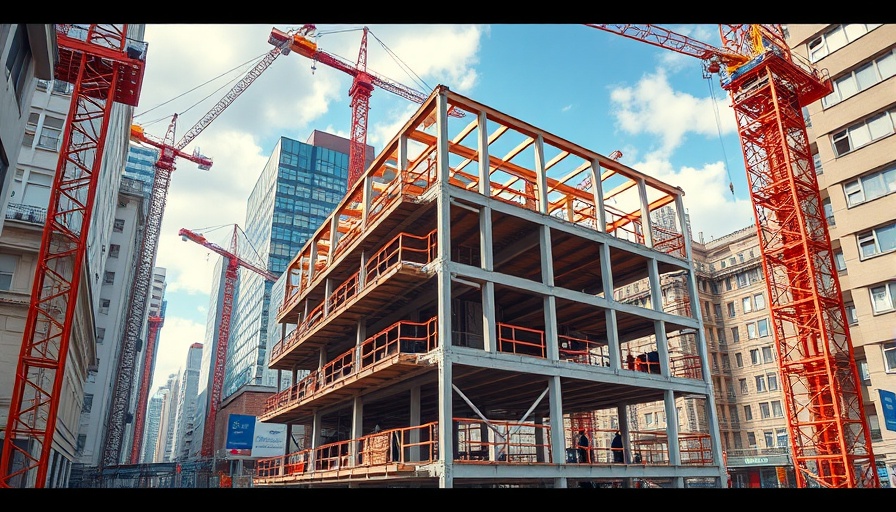
Understanding the Impacts of Tariffs on Construction Materials
As the construction industry navigates a complex landscape, the looming threat of tariffs on building materials is creating significant concern among contractors. With the introduction of new tariffs set to take effect on April 2, the materials most vulnerable to price spikes are primarily comprised of steel and aluminum. This volatility is especially pertinent for construction components such as rebar, structural steel, piping, and ductwork.
Which Materials are Most Affected?
Industry professionals, including Steve Stouthamer from Skanska USA Building, highlight specific materials that contractors should be particularly wary of. The reinforcing steel used in concrete structures and structural steel that forms the skeleton of buildings are among the top materials at risk. Tariffs could drive prices upward, putting financial strain on construction projects and potentially delaying timelines.
Why Tariffs Matter
The introduction of tariffs is not merely a bureaucratic issue; it directly impacts construction budgets and timelines. As Stouthamer states, the mere threat of impending tariffs has an immediate effect on market prices. For many construction businesses, the increased costs associated with imported materials like aluminum curtainwalls and window wall systems can affect project feasibility. Prices can fluctuate rapidly, creating unpredictability that contractors must plan for seriously.
The Broader Economic Context
Tariffs are often intended to protect domestic industries, but they can also lead to unintended consequences in related sectors. For the construction industry, which relies heavily on a diverse array of materials, these tariffs may disrupt supply chains and inflate costs. The repercussions may ripple beyond immediate price hikes, affecting everything from contractor negotiations to consumer home prices.
Preparing for Tariff Impacts
Contractors can take proactive steps to mitigate the financial impacts of tariffs. By diversifying their sources for materials and considering domestic options, they can reduce reliance on imported goods at risk of price increases. Additionally, contractors might find value in building stronger relationships with suppliers to ensure better pricing and availability in light of potential volatility.
Future Implications in Construction
The construction industry must remain vigilant as it adapts to changing economic conditions brought about by tariffs. The implications of these price shifts may be profound, affecting everything from project costs to workforce dynamics as businesses respond strategically. Understanding these trends is crucial for contractors aiming to navigate the complex landscape ahead.
As these changes unfold, staying informed about global markets and policy adjustments will be pivotal for the sector’s continued growth and efficiency.
 Add Row
Add Row  Add
Add 




 Add Row
Add Row  Add
Add 

Write A Comment